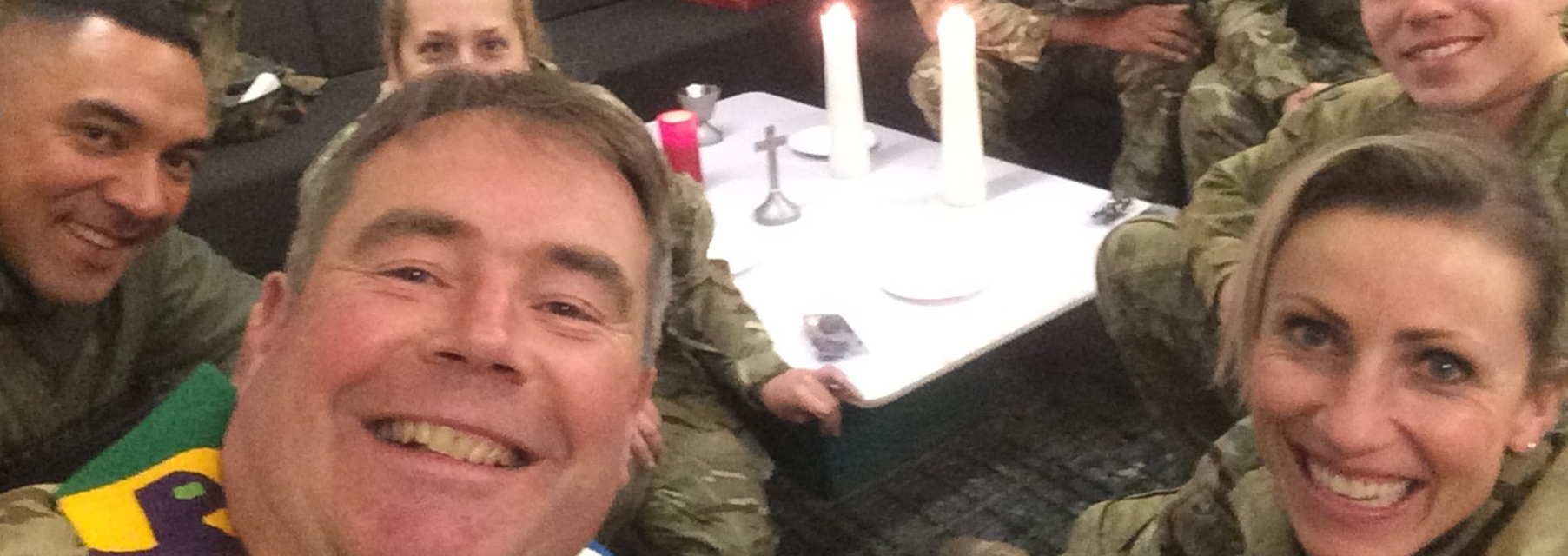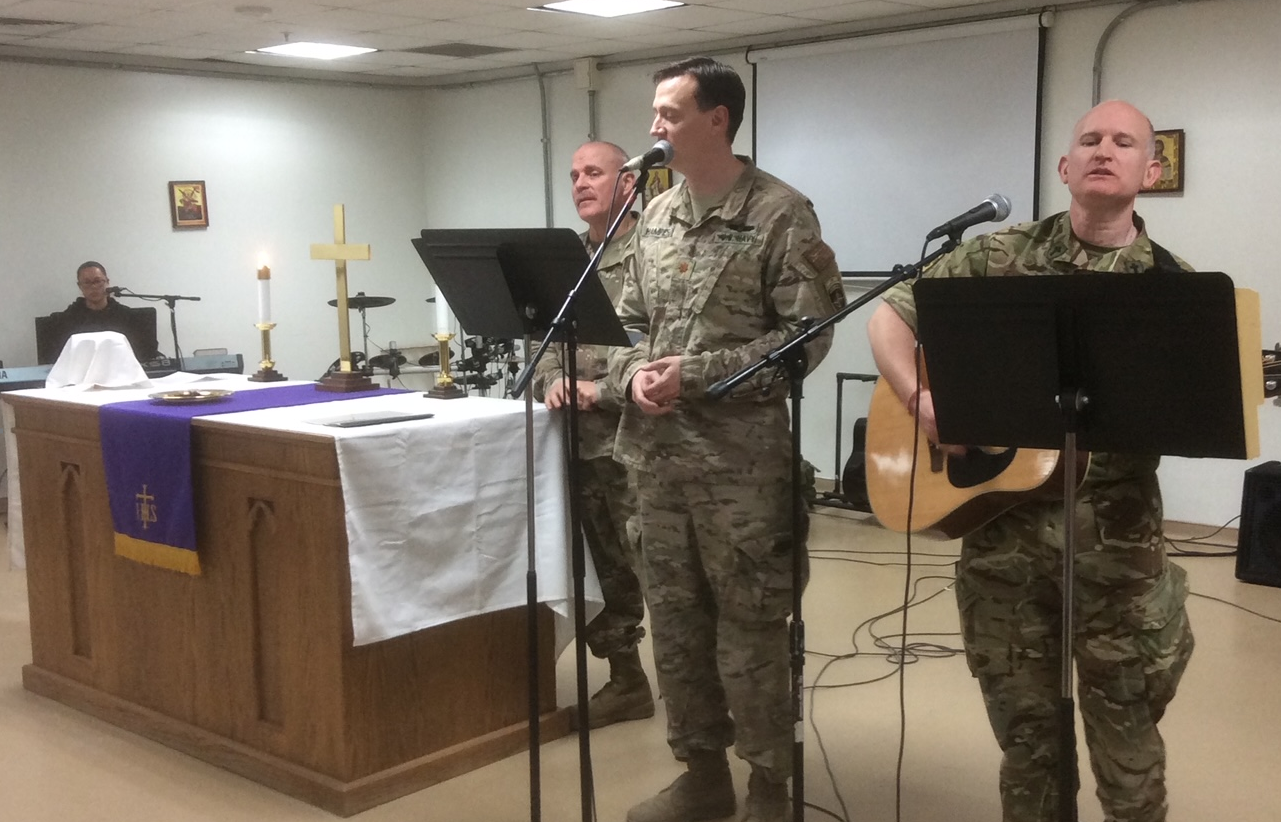Remembrance Sunday and Armistice Day are coming up, and as a country, we will once again share a quiet moment of solemn reflection to remember those who sacrificed so much for the freedoms we enjoy today. However, our thoughts will also be on those who have lost their lives in more recent wars, and the conflicts that currently rage across the world.
This Remembrance Sunday, The Rt Revd Andrew Watson, Bishop of Guildford and The Rt Revd Paul Davies, Bishop of Dorking will preach at the Royal Garrison Church of All Saints and Guildford Cathedral respectively. Also preaching at the Royal Garrison Church will be The Revd Iori Price, an army chaplain in the diocese. He tells us more about his role and how he marks Remembrance.
Describe your role as a military chaplain
I see my role as being rooted in care. I care for the military personnel as well as their families. There are three key strands to the role; the spiritual- providing weekly acts of worship in a formal or informal setting; pastoral- being a trusted listener and advisor, and helping to signpost military to support they need including mental health provision; thirdly- moral commentator- this part of the role is about providing the moral and ethical perspective to military leadership. Some historic examples have included chaplains raising moral objections to commanders on combat decisions, especially where there is a high risk of civilian casualties.

What does worship look like in a military context?
Providing weekly worship for the army can be offering services in a traditional chapel within the army barracks or it can be more ad hoc and informal. When I was deployed to Kabul, Afghanistan in 2018, I would hold ‘holy huddles’ which were short gatherings for communion or compline in an army tent. Or sometimes we shared a church with US troops which had all the usual musical equipment and electricity.
Is faith growing among the military community?
The military is really a snapshot of society. So while church attendance is down nationally, I feel there are more people who are searching and wondering where they fit in to whatever is around us. When I was working with recruits in Pirbright, the church services used to attract around 100 people each week. There would be a mixture of those with deep faith, others who had a childhood experience of worship (usually through church schools) and others who had never had contact with faith. Either way they liked what they heard, and it satisfied that genuine human desire to connect with something bigger than themselves. I think for those in the military, the question of mortality is more urgent, so perhaps it makes them more open.
What attracted you to the role of military chaplain?
I was ordained in Hereford which has a big military presence, so I came into contact with lots of people who served in the Army. I enjoyed hearing about their experiences and connecting with them. Becoming a military chaplain felt like the perfect fit. I’ve been doing the role for 14 years now. It’s exciting working with people who live exciting and busy lives, but who are happy to have deep and meaningful discussions.
How do you support the military pastorally?
As a chaplain, I make sure I am accessible at all times, and available when people just need to talk. Some chaplains will have training in mental health and other medical professions, but either way, we can signpost to professional help where needed. People in the armed forces can face many challenges. They may be struggling because of things they had to do on the battlefield, or even grappling with whether they are in the right job. Others will be far away from home and missing friends and family. Military chaplains are trusted and through word of mouth, senior military officials will often put their soldiers in touch with us if they need extra support.

Why is Remembrance Day still important?
The act of Remembrance is so important. We are commemorating those people who have gone before us, and we remember that we live in a broken world where war is everywhere. The last few years have shown that. The day is deeply poignant for many. Some may be wounded or have lost friends. Our trainees are sometimes looking back at their families who were in combat. As well as remembering collectively in services and marches, there is a huge individual focus too.
On Sunday, alongside Bishop Andrew, I will be leading a service at the Royal Garrison Church where the pews will be packed with over 1,000 people but later that day, I will join with a few others for a quiet act of remembrance in the woods in Gibraltar Barracks Minley, followed by a small gathering in the nearby café on camp, the Jackson Club, which has faith foundations.